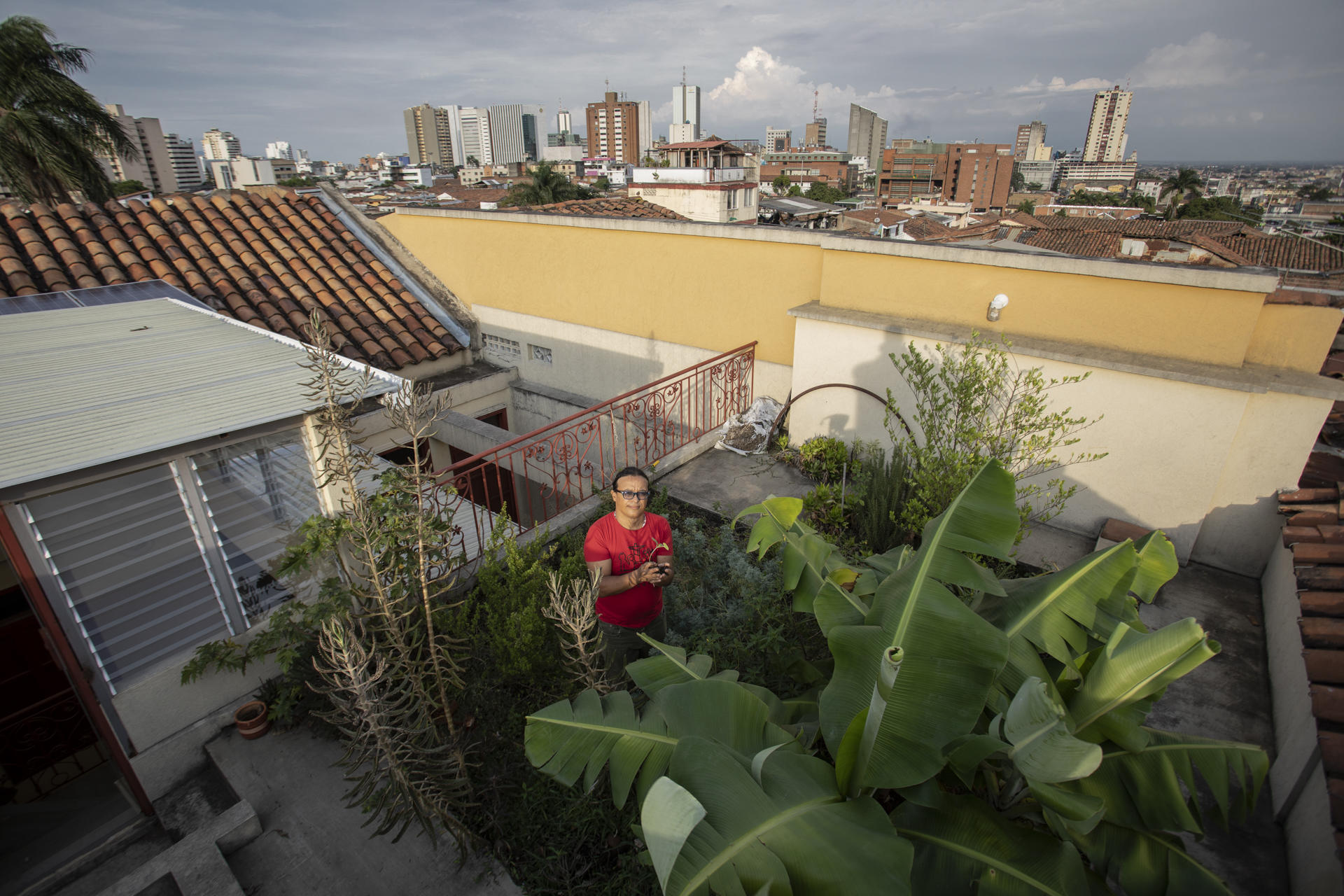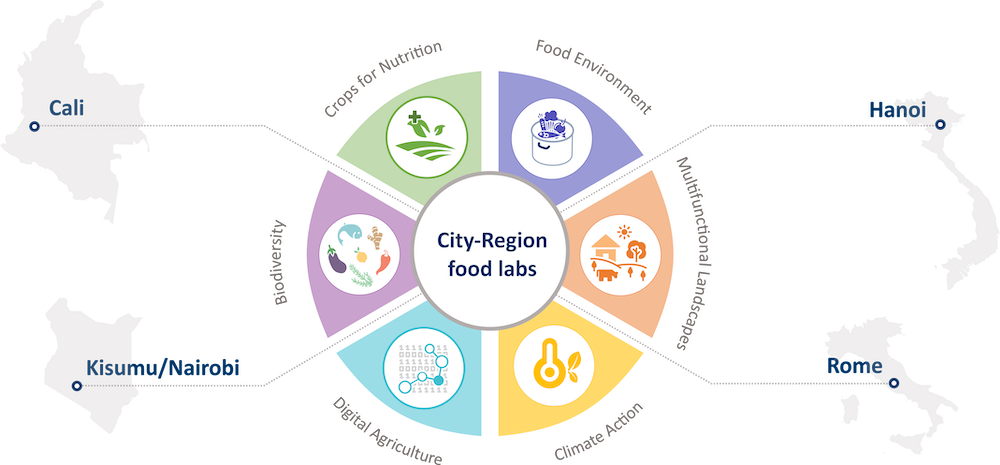Press and News A city region as a food lab for a greater understanding of food systems

Cali is one of the key food lab cities defined by the Alliance to increase the understanding of food systems and the capacity of its key players to transform them. Now, FOLU Colombia, local governments, private sector representatives and the Alliance will lead a coalition to co-design and test solutions to the most pressing challenges of the city region food system[1].
Located in southwestern Colombia, Cali’s food system supplies about 2.5 million inhabitants and has the potential to serve as a food lab where different key players can co-design and test multi-sector solutions to the most pressing challenges of the food system, including those exacerbated by Covid-19.
More than a decade ago, the Alliance began engaging with the food system through multi-stakeholder platforms to collect existing data, fill information gaps, and prioritize entry points. The main results of these efforts include:
- The consolidation of an Academic Platform on Food and Nutritional Security in 2016;
- The approval of a municipal public policy on food and nutrition security in 2019, proposed by the Academic Platform mentioned above;
- A study that used a combined methodology to assess, simultaneously, the impacts of food on the environment (Carbon footprint) and the impacts of projected changes in climate patterns on the suitability for food crop production, for the top five food products consumed in Cali: tomato, plantain, potato, rice, and chicken;
- An analysis that examines the degree to which indicators tracked in Cali’s 2016-2019 Municipal Development Plan, the city’s Climate Change Adaptation and Mitigation Plan, the city’s Resilience Strategy, and the ENSIN (Colombia ’s quinquennial health and nutrition survey) matched the 44 Monitoring Framework Indicators from the Milan Urban Food Policy Pact (MUFPP) to provide initial insights for decision-makers in Cali.

Recently, following the example of Hanoi (another food lab city), our researchers have advanced with an in-depth diagnosis of the Cali food system. This diagnosis is an important basis to assist key players in the city region to better understand the current system and what is determining its strengths and weaknesses. The preliminary results of this study have been shared with different public and private actors and have fostered new paths for dialogue in which the Municipal Government of Cali, the Departmental Government, Biotec Corporation, The Pontificia Universidad Javeriana Cali, and FOLU Colombia converged to create a Coalition for Food and Land Use.
A coalition for food and land use is born
The Food and Land Use Coalition (FOLU) is an initiative that connects entrepreneurs, investors, government entities, scientific community, academia, organized local communities, civil society organizations, guilds and multilateral organizations globally, nationally and territorially, in addition to actions to improve food systems. In March 2018, FOLU developed a workshop with more than 120 participants who helped to develop the FOLU Colombia Roadmap, which was subsequently harmonized with the National Development Plan 2018-2022. The Roadmap is a living document that includes the different comments and recommendations of various actors proposing exchange actions by 2030. This document can always be improved, adjusted and updated as required by the country and territories. FOLU intends to get different companies to contribute to the Roadmap and see coordinated action opportunities there.
Therefore, the FOLU Colombia Roadmap will serve as a guide for the new city-region Coalition for Food and Land Use created in Cali last November 25. This coalition supports the municipal strategy for sustainable economic development in Cali, which includes actions focused on promoting clean production and responsible consumption; competitive, modern and efficient food supply systems; green businesses ventures that contribute to environmental sustainability; and the incorporation of various solutions from a sustainable and circular economy perspective. In collaboration with this municipal strategy, the FOLU coalition interacts with department governments which contribute to Cali’s food system including the Valle del Cauca, Cauca, Nariño among others.
The Coalition will have a management group composed of the Alliance of Bioversity International and CIAT, FOLU Colombia, the Municipal Secretariat of Economic Development, Biotec Corporation, The Pontificia Universidad Javeriana Cali, the World Food Program, WWF, El Hatico Nature Reserve and the Departmental Government for Valle del Cauca. The technical secretariat will be led by the Alliance and FOLU Colombia. This management group will function to:
- Address the general work scheme for the construction and implementation of the FOLU Cali Region Roadmap;
- Support the formulation and implementation of the FOLU Cali Region Roadmap;
- Be Ambassadors of the FOLU Cali Region Coalition.
The next step is the development of the FOLU Cali Region Roadmap, based on a diagnosis of the city region food system. This work will build on analysis conducted this year to validate, enrich and consolidate existing information through participatory processes with key players. This baseline analysis will lead to a Roadmap with priority recommendations and actions to guide and articulate initiatives over a 10-year horizon. The goal remains an inclusive, resilient and sustainable city region food system that nourishes all members of society.
[1] What is a City Region Food System? A city region is defined by FAO as “a larger urban center or conglomeration of smaller urban centers and the surrounding and interspersed periurban and rural hinterland”. Although contexts differ across cities and regions, such urban-rural partnerships and inter-municipal cooperation always extend beyond traditional administrative boundaries. A City Region Food System (CRFS) is defined as “all the actors, processes and relationships that are involved in food production, processing, distribution and consumption in a given city region”.
